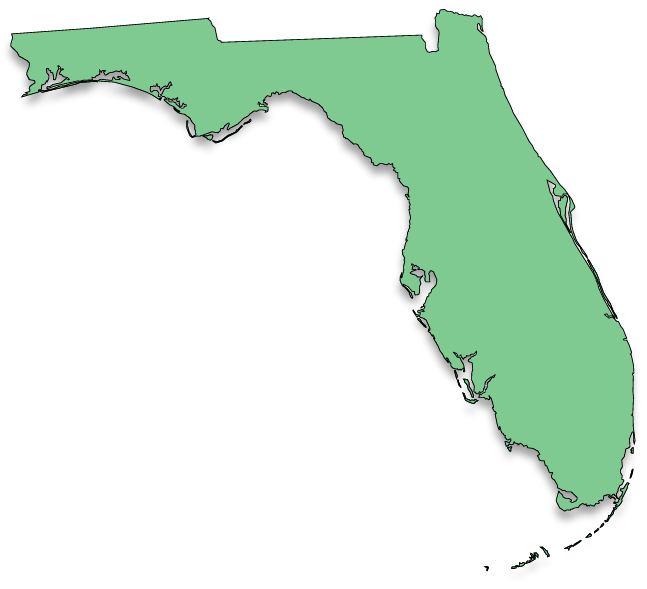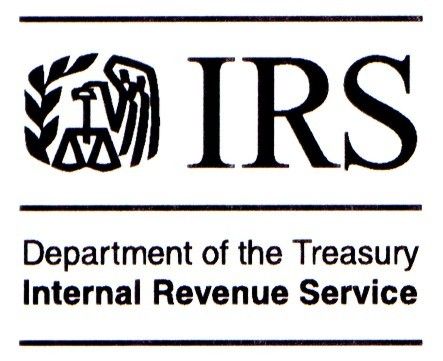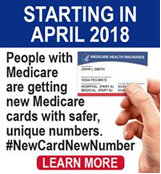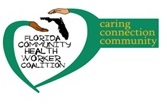APRIL IS MEDICAID AWARENESS MONTH!
Click here to check out the Medicaid Toolkit.
|
LUNCH &
LEARN CONFERENCE CALL
|
Date
|
Friday, May 25th 2018
|
|
Time
|
12:30-1:30 PM
|
From your computer, tablet or smartphone:
Or, you can dial +1 (872) 240-3311
Access Code: 307-260-925
|
|

President Trump quietly signed a long-anticipated executive order on 4/10/2018 intended to force low-income recipients of food assistance, Medicaid and low-income housing subsidies to join the work force or face the loss of their benefits. The order, in the works since last year, has an ambitious title - "Reducing Poverty in America" - and is directed at "any program that provides means-tested assistance or other assistance that provides benefits to people, households or families that have low incomes," according to the order's text. New York Times
[Note: Advocates fear that many will lose Medicaid as a result of work requirements. CBPP]
House Speaker Paul Ryan will leave office in January likely without having achieved two of his top health policy priorities: repealing the Affordable Care Act and tackling entitlement reform. The Wisconsin Republican confirmed Wednesday that he won't seek re-election in November. He is now one of 38 sitting Republican House lawmakers who won't seek re-election in a cycle that retiring Rep. Charlie Dent (R-Pa.) described as a referendum on President Donald Trump "and his conduct in office." Ryan leaves an uncertain healthcare policy legacy. Modern Healthcare
A new law in Iowa could provide the path forward for Republican-led states that are looking for ways around ObamaCare's rules and regulations. Iowa Gov. Kim Reynolds (R) on Monday signed a law that will allow the Iowa Farm Bureau to collaborate with Wellmark Blue Cross and Blue Shield on self-funded "health benefit plans." The Hill
The Trump administration says it plans to roll back a rule issued by President Barack Obama that prevents doctors, hospitals and health insurance companies from discriminating against transgender people. Advocates said the change could jeopardize the significant gains that transgender people have seen in access to medical care, including gender reassignment procedures - treatments for which many insurers denied coverage in the past. New York Times
Rear Adm. Ronny Jackson has withdrawn as President Donald Trump's nominee to lead the Department of Veterans Affairs.
His nomination was hampered by a flurry of allegations about Jackson's professional conduct.
In a statement announcing his withdrawal, Jackson slammed allegations of improper behavior leveled against him as "completely false and fabricated". "
If they had any merit, I would not have been selected, promoted and entrusted to serve in such a sensitive and important role as physician to three presidents over the past 12 years," Jackson said. "Going into this process, I expected tough questions about how to best care for our veterans, but I did not expect to have to dignify baseless and anonymous attacks on my character and integrity."
CNN
|

For the second time in recent months, congressional lawmakers are asking if the Food and Drug Administration reversed a policy that allows Americans to import medicines under select circumstances. In a letter to the agency, the lawmakers referenced a series of raids last year in which FDA investigators visited Florida stores with search warrants to warn the owners that importing drugs from foreign countries is illegal. This was the same series of searches that prompted several senators last December to write the FDA about any changes in its policy toward importation.
Stat
Miami is at risk of a deadly yellow fever outbreak because the disease could thrive there but the city has no checks on travelers arriving from endemic zones, a study to be published by the World Health Organization showed. Yellow fever is spread by the same mosquito that causes Zika virus, which spread through the Americas after being detected in Brazil in 2015 and has been reported in southern Florida and southern Texas. Reuters
HRSA and FDOH have requested FACHC's assistance with staffing at Florida's Special Needs Shelters (SpNS). This voluntary project would utilize FQHC nurses when the SpNS is short-staffed before/after an emergency. FQHC staff salaries would be reimbursed to the center and FACHC is working to ensure FTCA coverage follows partcipants.
Click here
for more information.
After a shooting that killed 17 people at a Parkland, Fla., high school, the mayor of nearby Weston wanted to prohibit people from carrying guns in public buildings and parks - a move that could lead to him being kicked out of office and on the hook for thousands of dollars in fines and attorney's fees. Florida law prohibits local municipalities from passing ordinances that regulate firearms or ammunition, and if one is passed that violates the state statue, it will be declared void. Elected or appointed officials involved in the drafting or passage of such local rules face fines of up to $5,000, will be unable to use a city attorney and could be held responsible for footing up to $100,000 of the legal bills for anyone who challenges the local rule in court. The governor is also given the power to kick them out of office. Washington Post
|

IRS Dirty Dozen: Watch Out for these 12 Scams
Each year, the IRS releases the top 12 income tax scams, known as the Dirty Dozen. The schemes run the gamut from simple refund inflation to technical tax shelter deals:
- Phishing: Fake emails or websites
looking to steal personal information. The IRS will never initiate contact with taxpayers via email about a bill or tax refund.
- Phone Scams: Phone calls from criminals impersonating IRS agent.
- Identity Theft: Criminals file fraudulent tax returns using someone else's SSN.
- Return Preparer Fraud: These preparers commit refund fraud, identity theft and other scams that hurt taxpayers.
- Fake Charities: Donors should take a few extra minutes to make sure their money goes to legitimate charities.
- Inflated Refund Claims: Taxpayers should be wary of anyone promising inflated tax refunds.
- Excessive Claims for Business Credits: Most taxpayers aren't eligible for this credit, as the law usually limits it to off-highway business use, including farming.
- Falsely Padding Deductions on Returns: Taxpayers do this to pay less than what they owe or receive a larger refund than they should get.
- Falsifying Income to Claim Credits: Con artists may convince taxpayers to invent income to erroneously qualify for tax credits, such as the Earned Income Tax Credit.
- Frivolous Tax Arguments: Promoters encourage taxpayers to make outlandish claims about the legality of paying taxes. These claims are repeatedly thrown out in court.
- Abusive Tax Shelters: Everyone should beware of people peddling tax shelters that sound too good to be true.
- Offshore Tax Avoidance: It's a bad bet to hide money and income offshore.
|
 PRETTY PLEASE! PRETTY PLEASE!
Use the correct & complete CAC & NAV # on all applications!
***13 characters (FLCAC or FLNAV + A/B/C/D + 2 digit contract # + 5 digit CAC or NAV # ***
*** CAC or NAV # is issued by your employer***
|

New Medicare Card Project
We've now started mailing newly-designed Medicare cards with the new Medicare Beneficiary Identifier (MBI), or Medicare Number. People enrolling in Medicare for the first time will be among the first to get the new cards, no matter where they live. Current Medicare beneficiaries will get their new cards on a rolling basis over the
coming months. During our planning, we've continuously adjusted and improved our mailing strategy to make sure we're:
- Mailing the new cards to accurate addresses.
- Protecting current Medicare beneficiaries and their personal information in every way possible.
We're working on making our processes even better so we're using the highest levels of fraud protection when we mail new cards to current Medicare beneficiaries. Over the next few weeks, we'll be done with this additional work so we can mail new cards to current Medicare beneficiaries.
We're committed to mailing new cards to all Medicare beneficiaries over the next year.
|

11.8 MILLION CONSUMERS ENROLL IN 2019 EXCHANGE COVERAGE
The Centers for Medicare & Medicaid Services (CMS) released the Final Enrollment Report for the 2018 Health Insurance Exchanges showing approximately 11.8 million consumers selected or were automatically re-enrolled in an Exchange plan in the 50 states, plus DC. This includes 8.7 million consumers in the 39 states using Healthcare.gov and 3 million consumers in State-based Exchanges. Compared to prior years, this year's open enrollment was the agency's most cost effective and successful experience for HealthCare.gov consumers to date. While the 2018 open enrollment period ran smoothly, Americans continue to experience skyrocketing premiums and limited choice.
"Our primary goal this year was to ensure that Americans who wanted coverage through the Exchange had a seamless experience," said CMS Administrator Seema Verma. "We are pleased that consumer satisfaction was the highest it's ever been during the 2018 open enrollment period. However, even with the success of this year's open enrollment, the individual market continues to see premiums rise and choices diminish. Average individual market premiums have more than doubled since 2013 compared to health plans on the Exchange in 2018, and half of U.S. counties have had only one issuer to choose from this year."
Click here, to read the full report.
ENHANCED APPLICATION AND RENEWAL PROCESS
Beginning in 2013, Federally Qualified Health Centers (FQHCs) who participate in the CAC programs of the Affordable Care Act (ACA) executed a contract with CMS. Under this agreement, FQHCs became Certified Designated Organizations (CDOs) and were authorized to hire and train staff as Certified Application Counselors. CACs are expected to provide consumers with unbiased enrollment assistance in Health Insurance Marketplace plans, Medicaid and/or the Children's Health Insurance Program (CHIP). Funding for the programs was initially provided through a grant process. After 2 years, that funding was integrated into the annual allocation of each FQHC.
There has been a lot of turnover in these programs - - both of staff and participating organizations. As a result, CMS will launch an annual enhanced application and renewal process where all CDOs will be required to reapply to continue in the CAC program. Following are some highlights:
- the application process is currently suspended for new participants
- the enhanced application and renewal process will occur between now and Summer 2018
- existing CDOs will receive an e-mail invitation to reapply to participate in the CAC program
- CDOs will need to reapply to participate in the CAC program every two (2) years
- CACs still need to satisfactorily complete annual training
As part of this new process, the Health Insurance Marketplace application will be updated along with features that allow CDOs to update their information.
Click here for a sample of the announcement you should receive.
CMS ISSUES FINAL 2019 PAYMENT NOTICE RULE
The Patient Protection and Affordable Care Act has led to higher premiums and fewer choices. Between 2013 and 2017, the average premiums more than doubled in the states using the Federal Health Insurance Exchange platform and half of the counties in America had only one issuer to choose from this year. CMS issued a final 2019 payment notice rule to provide states with the tools needed to help lower health premiums or, stabilize premium growth. The final rule will enhance consumer choice by removing provisions that discourage issuers from offering plans that address the specific needs of Americans. A Final Annual Issuer Letter was also released. This Letter provides operational and technical guidance to issuers that want to offer Qualified Health Plans (QHPs) in the Federally-facilitated Exchanges (FFEs) for plan years beginning in 2019.
CMS has issued new guidance expanding hardship exemptions. Under this guidance, individuals who live in counties with no issuers or only one issuer, will now qualify for a hardship exemption from paying the Affordable Care Act's penalty for not having coverage. The guidance also allows CMS to consider a broad range of circumstances that result in consumers needing hardship exemptions. Lastly, CMS issued a bulletin today to extend the transitional policy for one additional year. This policy allows for the transition to fully Affordable Care Act compliant coverage in the individual and small group health insurance markets until 2019.
Click here for the full CMS Press Release.
Click here for the Final Annual Issuer Letter.
Click here for the Hardship Exemption Guidance.
Click here
for the Extended Transitional Policy Guidance.
Click here
for the Payment Notice Fact Sheet for this rule.
Click here for the Final Notice on the Federal Register.
[Note: Click here for a CBPP analysis of how the changes will harm consumers.]
HARDSHIP EXEMPTIONS
There are already more than a dozen reasons people can use to avoid paying the penalty for not having health insurance. Now the federal government has added four more "hardship exemptions" that let people off the hook if they can't find a marketplace plan that meets not only their coverage needs but also reflects their view if they are opposed to abortion. It's unclear how significant the impact will be, policy analysts said. That's because the penalty for not having health insurance will be eliminated starting with tax year 2019, so the new exemptions will mostly apply to penalty payments this year and in the previous two years.
KHN
|

CHW Census
The Florida Community Health Worker Coalition, working jointly with University Miami CTSI, and the Health Council of South Florida is conducting the 2018 Florida Community Health Worker Census for CHWs, patient navigators, supervisors, allies and advocates.
We have trimmed down the questions and now are collecting updated 2018 information (only aggregated data with no identifiers will be reported) that will help us reflect accurately the environment for CHWs as we continue to advocate for the profession in our upcoming statements about the effectiveness and work of CHWs in the state of Florida. You may have filled out earlier versions in 2014, 2015, or 2016. But we ask you to fill out this new version because it includes information about those who are already certified.
Click here to take the Census.
CHW Training Curriculum
MHP Salud, a national leader in the CHW field, has announced the release of L.E.A.D., their core CHW curriculum for national use. LEAD stands for Listen, Empower, Advance, Deliver), and it was based on the C3 Core Competencies, in order to make it compatible with definitions and standards being developed in multiple states.
Click here for more information.
|

Additional Special Enrollment Period Available for Individuals Affected by 2017 Hurricanes and Hurricane-Related Weather Events
On September 28, 2017, CMS released guidance about a Special Enrollment Period (SEP) and other flexibilities that were available for consumers affected by Hurricanes and hurricane-related weather events that occurred in 2017. The guidance included information about an Exceptional Circumstance SEP that allowed affected consumers to select a 2018 Marketplace plan or make changes to their existing 2018 plan from December 16 to December 31, 2017. CMS has identified consumers who were erroneously denied access to this Exceptional Circumstances SEP and is notifying these consumers of eligibility for another SEP due to the error or misrepresentation of the Marketplace. These consumers will be able to select a 2018 Marketplace plan or make changes to their existing 2018 plan by May 24, 2018. Coverage accessed under this SEP will begin June 1st or July 1st, depending on the date the consumer selects their plan. Consumers wishing to access coverage prior to June 1st must file an appeal within 90 days of the date of SEP Eligibility Notice.
Power Outages Again in Puerto Rico
Helicopters from the power company buzz across the skies of this picturesque valley, ferrying electrical poles on long wires to workers standing on steep hillsides. The people of Castañer, an isolated village in Puerto Rico's central mountains, watch warily. Crews have come and gone, and people living along the mountain roads don't expect to get power until late summer, if ever. Power finally started flowing to the center of town last month, but the electrical grid remains unstable - an island-wide blackout Wednesday disrupted progress - and the hospital continues to use its own generator. KHN
|

Confidentiality and PII
As an assister helping consumers applying for health insurance through a Federally-facilitated Marketplace (FFM), you may encounter consumers' personally identifiable information (PII). PII includes any information that can be used to distinguish or trace an individual's identity either alone or when combined with other information that is linked or linkable to a specific individual. FFM Navigators and CACs are permitted to create, collect, disclose, access, maintain, store and use consumer PII only to perform functions that they are authorized to perform as assisters, including their required assister duties or, for other purposes for which the consumer provides his or her specific and informed consent.
Click here for a sample Authorization Form in English.
Click here for a sample Authorization Form in Spanish.
|

Marketplace Webinar
Friday, April 27, 2018
2:00 PM - 3:00 PM ET
Please join us for Marketplace updates and two webinar presentations.
The first presentation will provide an overview of the Notice of Benefit and Payment Parameters for 2019 Final Rule. You can read the Final Rule
here
and a fact sheet about it
here
. The second presentation will highlight the feedback received from assisters who participated in a 2017 Assister Summit session titled "Keeping Consumers Covered." Click here to register.
Health Network: A Care Coordination Program for Mobile Patients
Friday, May 4, 2018
3:00-4:15 PM ET
This FACHC webinar discusses a program of the Migrant Clinician's Network.The Health Network program assures case management and continuity of care for mobile or highly transient patients by providing "bridge case management". Enrollment is quick and easy and, services are subsidized for FQHCs under a HRSA Cooperative Agreement with.
Click here to register.
|
All Plan Year 2018 Florida Enrollment Assistance Personnel
PLEASE REGISTER NOW!
|

We did not receive our Quality Leadership Award. I called HRSA and they referred me to you. Who do we contact?
That's so silly since HRSA is the one that published the awards! Here's the info I have:
If you received a Quality Improvement Award for achieving national and/or health center quality leader standards but have not received a certificate in the mail, please contact the BPHC Helpline or by phone at 877-974-BPHC (2742).
My new CEO is wondering why she does not receive this newsletter.
I'm flattered by her interest! The Assister Bulletin is an e-newsletter directed toward all enrollment assisters who enroll consumers in health/dental coverage through the Health Insurance Marketplace. Some CEOs were placed on the original distribution list back in 2013 because they were the signatories on the Quarterly Progress Reports we were required to submit. But that ended on 2016 and since then, we have asked those who are interested in receiving this e-newsletter to sign-up for it by registering on the Enrollment Assister Database. It is an annual registration process because we have a lot of turnover.
If I call the Marketplace to request a "Coming Out of the Medicaid Coverage Gap" SEP for a consumer, do I ask to speak directly to a CMS Caseworker or will the Marketplace rep update the consumer's application then forward it to the CMS Caseworker?
Consumers or Enrollment Assistance Personnel should not have to request to speak with a CMS Caseworker. An increase of income (so it's between 100-400% FPL) could make those consumers newly eligible for Marketplace coverage with APTC. To request this SEP, the consumer should contact the Marketplace Call Center w
ithin 60 days of the increase in income and attest that they:
- weren't eligible for Medicaid because Florida did not expand Medicaid,
- weren't income eligible for a Marketplace plan with tax credits when they first applied and,
- had an increase in expected yearly income that now qualifies them for a Marketplace plan with tax credits
How can I make sure I receive the renewal notice from CMS when the application comes out? I do not know who is listed as the primary contact from our organization. I would start by seeing if I could find a copy of the contract. There should be one on file at your main office. The primary contact is normally the signatory on the contract and that's the person that will likely receive the renewal notice. Send your concerns about the renewal process, including new contact name & e-mail to [email protected] Ideally, you should provide them with:
- your CDO number
- your contract number
- the name & e-mail of the earlier contract signatory
- the name & e-mail of the new contract signatory
Does the Call Center give you a headache?
Got a question and need a reliable answer FAST?
|
|
|
|
|